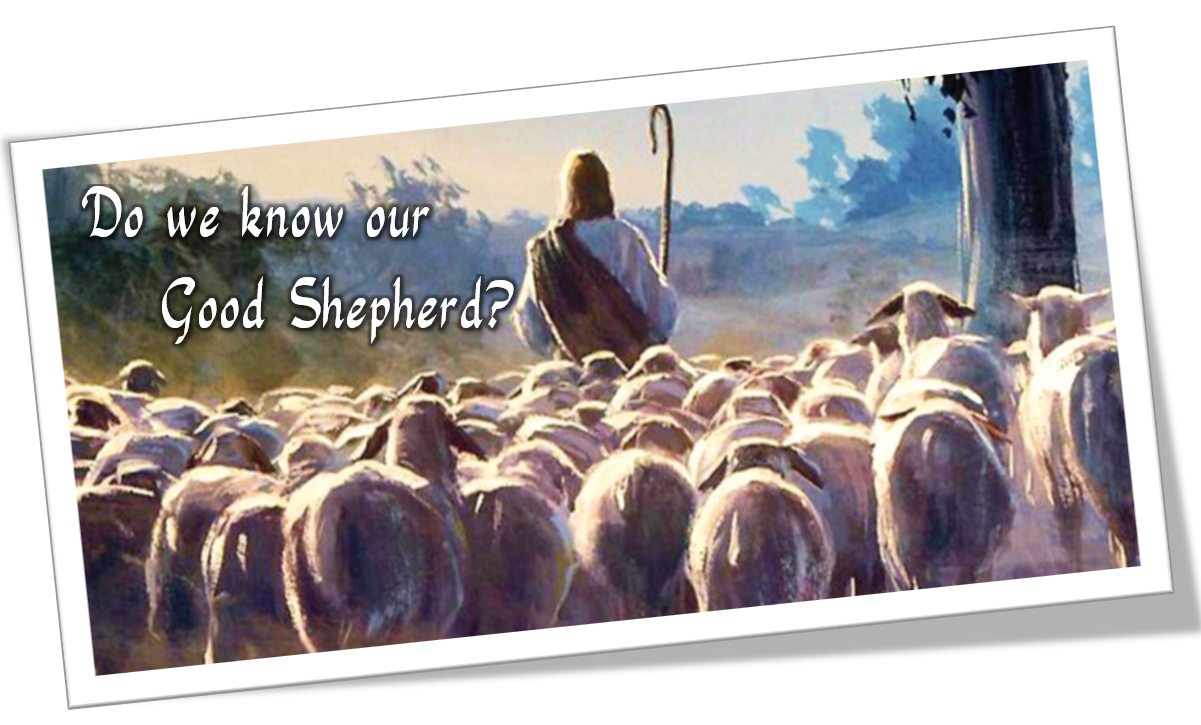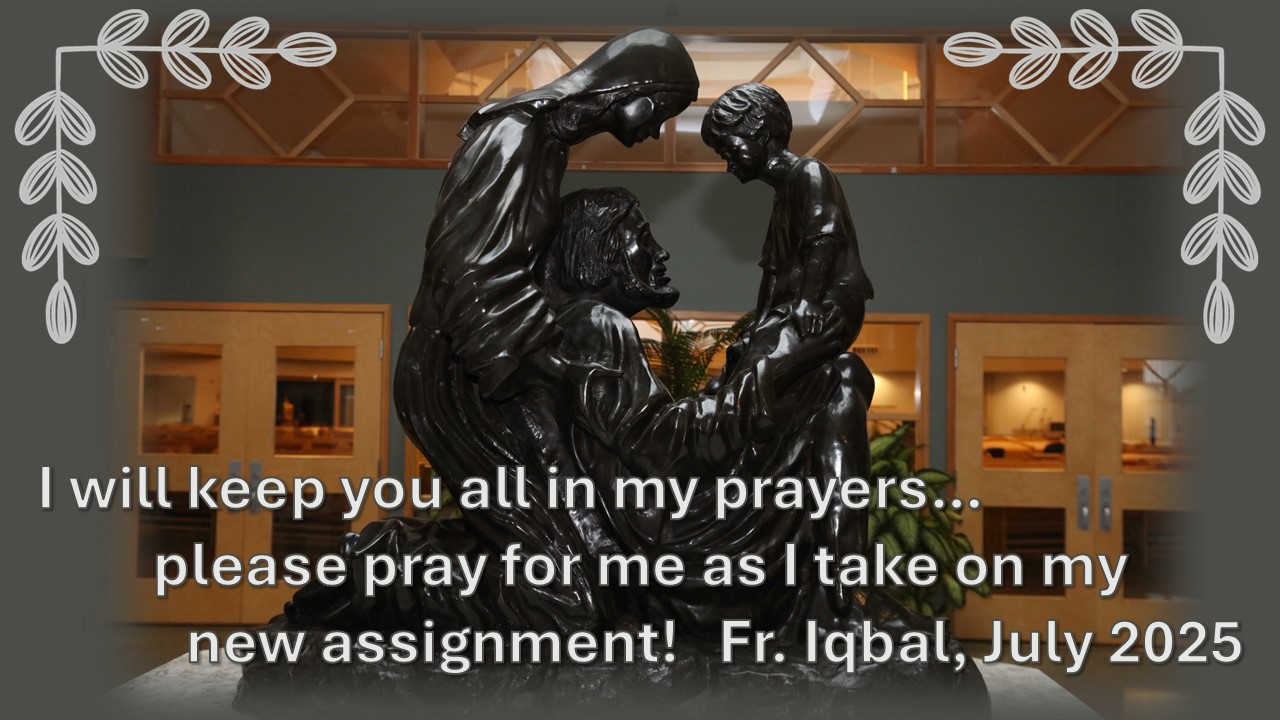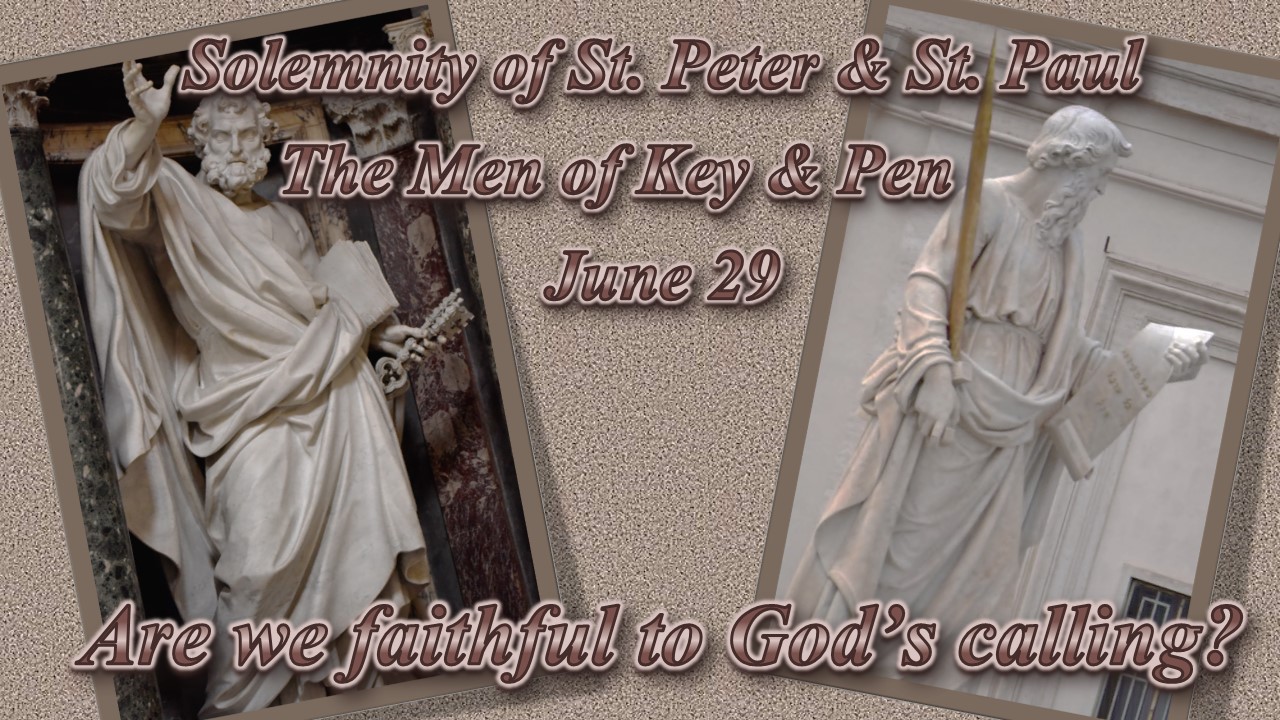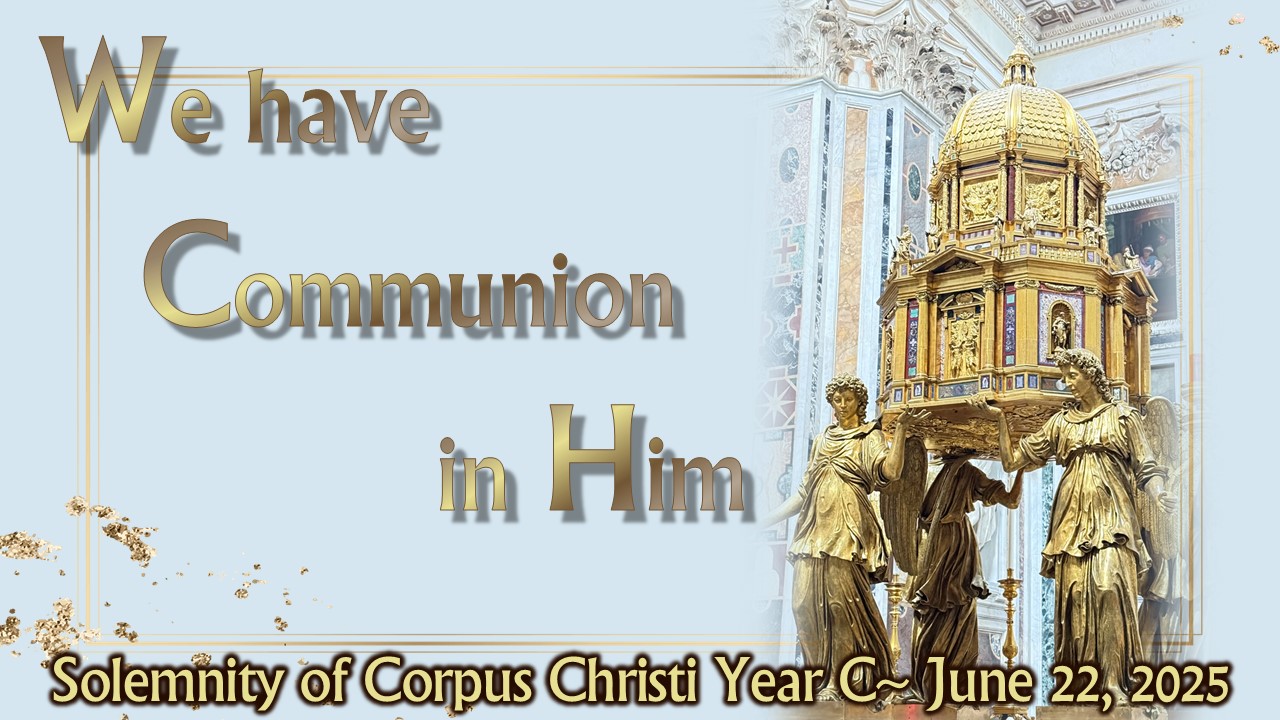
4th Sunday of Easter Year C – May 8, 2022
DO WE KNOW OUR SHEPHERD?
Every year the fourth Sunday during Easter is celebrated as “Good Shepherd Sunday” to highlight the qualities and attributes of Jesus who is our Good Shepherd who died for his own sheep. Today we also pray for more vocation to religious life because “harvest is plentiful, but labourers are few”. Jesus called himself “THE GOOD SHEPHERD”. When he said this, his audience probably knew well the role of a shepherd. I live in a village and shepherds are very common there. The life of shepherds is very hard and busy 24/7 looking after the animals. They are protective, caring, and strong in relationship with their sheep.
In the Bible, sheep and shepherds are referred to with great frequency. Sometimes, the Bible talks about real sheep and real shepherds. Other times, it compares God’s people to sheep and the leaders of God’s people as shepherds. Only Jesus is called the good shepherd. What is it about Jesus that makes him refer to himself as such?
A little boy wanted to meet God. He knew it was a long trip to where God lived, so he packed his suitcase with Twinkies and a six-pack of root beer, and he started his journey. When he had gone about three blocks, he met an old man. He was sitting in the park just staring at some pigeons. The boy sat down next to him and opened his suitcase. He was about to take a drink from his root beer when he noticed that the old man looked hungry, so he offered him a Twinkie. He gratefully accepted it and smiled at him. His smile was so pleasant that the boy wanted to see it again, so he offered him a root beer. Again, he smiled at him. The boy was delighted! They sat there all afternoon eating and smiling, but they never said a word. As it grew dark, the boy realized how tired he was and he got up to leave, but before he had gone more than a few steps, he turned around, ran back to the old man, and gave him a hug. He gave him his biggest smile ever. When the boy opened the door to his own house a short time later, his mother was surprised by the look of joy on his face. She asked him, “What did you do today that made you so happy? “He replied, “I had lunch with God.” But before his mother could respond, he added, “You know what? He’s got the most beautiful smile I’ve ever seen!” Meanwhile, the old man, also radiant with joy, returned to his home. His son was stunned by the look of peace on his face, and he asked, “Dad, what did you do today that made you so happy?” He replied, “I ate Twinkies in the park with God.” However, before his son responded, he added, “You know, he’s much younger than I expected.”
“The Lord is our Good Shepherd and there is nothing I shall want because he leads me to the green pastures and anoints my head with the purest of oil” Psalmist describes the attributes of the Lord. All of us have amazing vocation stories to share with one another which lead us to have better and strong relationship with the Lord. Our vocation stories are based on our calling, mission and vision and without these we are nothing. St. Gregory the Great reflecting on the image of Christ the Good Shepherd says “I am the good shepherd. I know my own—by which I mean, I love them—and my own know me. In plain words: those who love me are willing to follow me, for anyone who does not love the truth has not yet come to know it. My dear brethren, you have heard the test we pastors’ have to undergo. Turn now to consider how these words of our Lord imply a test for yourselves also. Ask yourselves whether you belong to his flock, whether you know him, whether the light of his truth shines in your minds. I assure you that it is not by faith that you will come to know him, but by love, not by mere conviction, but by action. John the evangelist is my authority for this statement. He tells us that anyone who claims to know God without keeping his commandments is a liar. Consequently, the Lord immediately adds: As the Father knows me and I know the Father; and I lay down my life for my sheep. Clearly, he means that laying down his life for his sheep gives evidence of his knowledge of the Father and the Father’s knowledge of him. In other words, by the love with which he dies for his sheep he shows how greatly he loves his Father”.
He continues to say “Again he says: My sheep hear my voice, and I know them; they follow me, and I give them eternal life. Shortly before this he had declared: If anyone enters the sheepfold through me, he shall be saved; he shall go freely in and out and shall find good pasture. He will enter into a life of faith; from faith he will go out to vision, from belief to contemplation, and will graze in the good pastures of everlasting life. So, our Lord’s sheep will finally reach their grazing ground where all who follow him in simplicity of heart will feed on the green pastures of eternity. These pastures are the spiritual joys of heaven. There is the elect look upon the face of God with unclouded vision and feast at the banquet of life for ever more”.
In the First Reading we see St. Paul and St. Barnabas after seeing the stubbornness of the Jewish authorities, turn their focus to Gentiles “It was necessary that the Word of God should be spoken first to you. Since you reject it and judge yourselves to be unworthy of eternal life, we are now turning to the Gentiles. For so the Lord has commanded us, saying, “I have set you to be a light for the Gentiles, so that you may bring salvation to the ends of the earth”. Apostles played the role of shepherds to different communities within the Roman Empire and converted them to Christian Faith. Although they suffered for the sake of the Gospel and embraced martyrdom, but they knew about their calling and obligation to continue to witness Jesus to other people.
As we reflect on the attributes of Good Shepherd, we are also invited to test our own obedience to him “who was humble and became obedient to death even death on a cross” as St. Paul says. The following is a very interesting story from the early desert fathers. A brother from Scetis was going to harvest: and he went to one of the great hermits and said, ‘Tell me, abba, what am I to do, while I am harvesting?’ The hermit said, ‘If I tell you, will you do as I say?’ The brother answered, ‘Yes; I will obey you.’ He said, ‘If you do what I say, you will give up your harvesting: and come here, and I will tell you what to do.’ So, the brother abandoned his harvesting, and came to the hermit who said, ‘Go into your cell, and stay there fifty days without a break. Eat bread and salt once a day. At the end of that time, I will tell you what to do next.’ He did so and came back to the hermit. The hermit realized that he was in earnest and told him how he ought to live in his cell. The brother went into his cell, and for three days and nights he lay prone upon the ground, in penitence before God. Then the thought came into his mind, ‘You are very good, you are a great man,’ but he took control of his thoughts, and in humility called his sins to mind, saying, ‘What about all the sins I have committed?’ If the thought rose in his mind that he had neglected the commandments of God, he said to himself, ‘I will offer God a little service, and I believe that He will have mercy upon me.’ So, he conquered the demons that sent him wicked thoughts: and they appeared before him in a visible form, and said, ‘You are making us angry.’ He said to them, ‘Why?’ They said, ‘If we praise you, you are quick to be humble; if we humble you, you rise up on high.’
In our calling or vocation obedience is the most important element. In the Gospel today, Jesus himself shared the first quality of good sheep “my sheep hear my voice” which is the first step to obedience. Jesus our Good Shepherd keep calling us every day to obey and listen.
Secondly Jesus speaks about his relationship with his sheep “I know them, and they follow me”. This is the key point of our relationship and only takes place when we listen and obey. However, our relationship with God has to be defined on His terms, because He has ownership of our past, present and future. God is faithful to forgive a genuine heart, guide a willing servant and uphold the promises He makes to those who faithfully endure. We can trust in the one who does not change, cannot lie, whose “mercy is ever lasting” and whose “truth endures to all generations” (Psalm 100:5). He does not deny us as St. Paul says. God has called those who trusted in Him “His children.” He loved the patriarchs of old like Noah and Job who endured, despite mounting pressure to give up. He was patient with the Israelites as they perfected being indifferent to the “God of their fathers.” Today, the trials of those who love Him find the same patience and forgiveness those first-century Christians found while studying at the feet of Paul, Timothy or Peter. God loves His children. He cares for them and values the relationship they share with Him on a daily basis more than any other relationship in this world.
Thirdly Jesus gives us eternal life and saves us from being perished in our shortcomings and failures of life. Jesus is the way, the truth, the life, and the resurrection and he gives us eternal life in abundance. Jesus being our Good Shepherd searches for us and have compassion all the time. He rejoices over sheep which was lost and got it back. Prophet Ezekiel talking about Good Shepherd says “For thus says the Lord God: I myself will search for my sheep and will seek them out. As shepherds seek out their flocks when they are among their scattered sheep, so I will seek out my sheep. I will rescue them from all the places to which they have been scattered on a day of clouds and thick darkness. I will bring them out from the peoples and gather them from the countries and will bring them into their own land; and I will feed them on the mountains of Israel, by the watercourses, and in all the inhabited parts of the land. I will feed them with good pasture, and the mountain heights of Israel shall be their pasture; there they shall lie down in good grazing land, and they shall feed on rich pasture on the mountains of Israel. I myself will be the shepherd of my sheep, and I will make them lie down, says the Lord God. I will seek the lost, and I will bring back the strayed, and I will bind up the injured, and I will strengthen the weak, but the fat and the strong I will destroy. I will feed them with justice”.
Fourthly Jesus being the Good Shepherd is very protective of his sheep “No one will snatch them out of my hand”. It is a powerful image of his protection we can see, and the Psalmist says, “he has appointed his angels to look after you lest you foot dash against the rock”. Jesus loves his own and never leaves them alone because he came to search for the lost sheep of Israel. St, John says in his First Letter “We know that those who are born of God do not sin, but the one who was born of God protects them, and the evil one does not touch them”. There is a beautiful prayer by Judith which really speaks about the protection of God towards his people “For your strength does not depend on numbers, nor your might on the powerful. But you are the God of the lowly, helper of the oppressed, upholder of the weak, protector of the forsaken, savior of those without hope. Please, please, God of my father, God of the heritage of Israel, Lord of heaven and earth, Creator of the waters, King of all your creation, hear my prayer! Make my deceitful words bring wound and bruise on those who have planned cruel things against your covenant, and against your sacred house, and against Mount Zion, and against the house your children possess. Let your whole nation and every tribe know and understand that you are God, the God of all power and might, and that there is no other who protects the people of Israel but you alone!”
Being under Jesus the Good Shepherd means we are one with him as he is one with his Father “The Father and I are one”. However, condition is only one that we must know our Good Shepherd.
There was once a Shakespearean actor who was known everywhere for his one-man shows of readings and recitations from the classics. He would always end his performance with a dramatic reading of Psalm 23. Each night, without exception, as the actor began his recitation – “The Lord is my Shepherd, I shall not want. the crowd would listen attentively. And then, at the conclusion of the Psalm, they would rise in thunderous applause in appreciation of the actor’s incredible ability to bring the verse to life.
But one night, just before the actor was to offer his customary recital of Psalm 23, a young man from the audience spoke up. “Sir, do you mind if tonight I recite Psalm 23?” The actor was quite taken back by this unusual request, but he allowed the young man to come forward and stand front and center on the stage to recite the Psalm, knowing that the ability of this unskilled youth would be no match for his own talent.
With a soft voice, the young man began to recite the words of the Psalm. When he was finished, there was no applause. There was no standing ovation as on other nights. All that could be heard was the sound of weeping. The audience had been so moved by the young man’s recitation that every eye was full of tears. Amazed by what he had heard, the actor said to the youth, “I don’t understand. I have been performing Psalm 23 for years. I have a lifetime of experience and training – but I have never been able to move an audience as you have tonight. Tell me, what is your secret?”
The young man quietly replied, “Well sir, you know the Psalm… I know the Shepherd.”
Recent Sermons

JULY 2025
July 03, 2025

SOLEMNITY OF ST. PETER & ST. PAUL ~ JUNE 29, 2025
June 26, 2025

SOLEMNITY OF CORPUS CHRISTI YEAR C ~ JUNE 22, 2025
June 19, 2025

